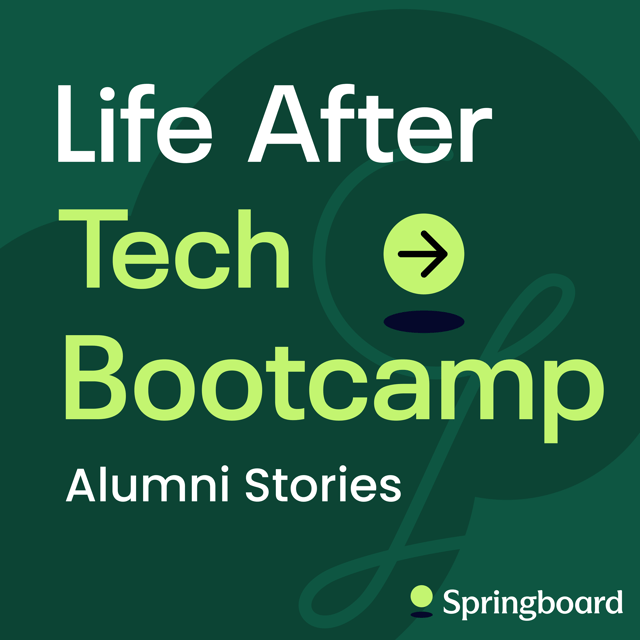

Katie went from being an interior designer to a UX Designer at Xfinity. This is a full-circle moment, folks! Katie's journey includes reaching out to our host, Elyssa, for an informational interview during her time as a Springboard student. And guess what? Now she's paying it forward as a mentor on ADPList!
In this episode, Katie speaks on the art of showcasing your soft skills during a career pivot and shares some pro tips on networking smartly and respectfully.
Get mentored by Katie here.
If you have any questions for Katie or the host that could be answered on a future episode, please email me at alumnipodcast@springboard.com.
Interested in finally taking the plunge by starting your career in tech? How does $1500 off a Springboard Career Track Course sound?
Use code EPEHT at checkout to save $1500.
Learn more here.
Edited by Dave Bianco

Katie went from being an interior designer to a UX Designer at Xfinity. This is a full-circle moment, folks! Katie's journey includes reaching out to our host, Elyssa, for an informational interview during her time as a Springboard student. And guess what? Now she's paying it forward as a mentor on ADPList!
In this episode, Katie speaks on the art of showcasing your soft skills during a career pivot and shares some pro tips on networking smartly and respectfully.
Get mentored by Katie here.
If you have any questions for Katie or the host that could be answered on a future episode, please email me at alumnipodcast@springboard.com.
Interested in finally taking the plunge by starting your career in tech? How does $1500 off a Springboard Career Track Course sound?
Use code EPEHT at checkout to save $1500.
Learn more here.
Edited by Dave Bianco

